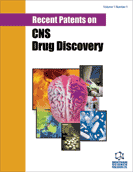Abstract
Transcranial Doppler ultrasonography (TCD) is the only non-invasive examination that provides a reliable evaluation of intracranial blood flow patterns in real-time, adding physiological information to the anatomical information obtained from other neuroimaging modalities. TCD is relatively cheap, can be performed bedside, and allows monitoring both in acute emergency settings as well as for prolonged periods with a high temporal resolution making it ideal for studying dynamic cerebrovascular responses. Extended applications of transcranial Doppler in enhancing intravenous thrombolysis in acute stroke, emboli monitoring, right-to-left shunt detection and vasomotor reactivity provide important information about the pathophysiology of cerebrovascular ischemia. In acute cerebral ischemia, TCD is capable of providing rapid information about the hemodynamic status of the cerebral circulation, monitoring recanalization in realtime with a potential for enhancing tissue plasminogen activator (TPA) induced thrombolysis. Advanced applications of TCD make it an important and valuable tool for evaluating stroke mechanisms, plan and monitor treatment and determine prognosis. TCD has an established clinical value in the diagnostic workup of stroke patients and is suggested as essential components of a comprehensive stroke center. We have reviewed various recent patents in addition to the diagnostic, therapeutic, as well as, prognostic applications of TCD in patients with cerebrovascular disease.
Keywords: Ischemic stroke, cerebrovascular disease, Transcranial Doppler, cerebrovascular ultrasound
 42
42

